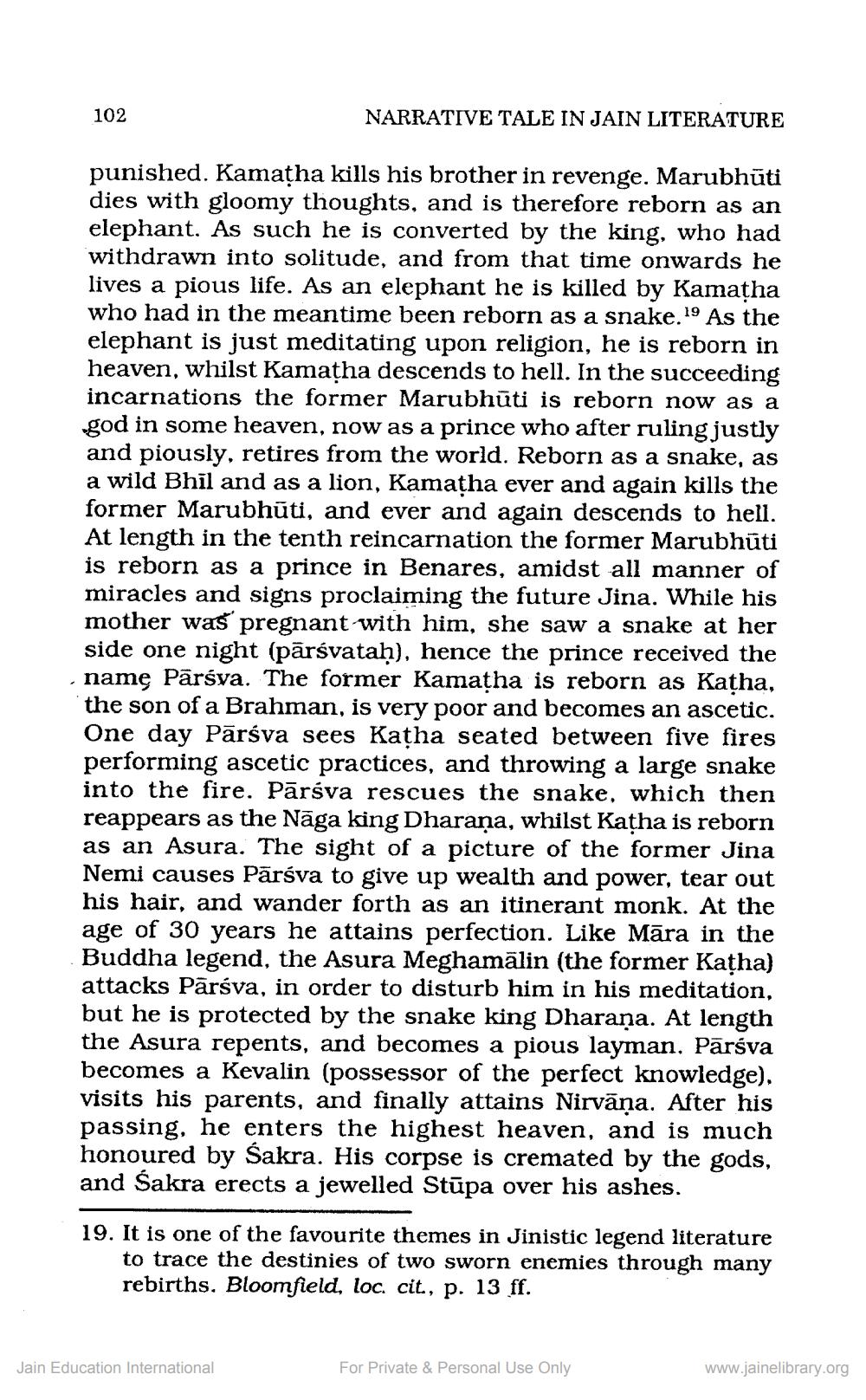________________
102
NARRATIVE TALE IN JAIN LITERATURE
punished. Kamatha kills his brother in revenge. Marubhūti dies with gloomy thoughts, and is therefore reborn as an elephant. As such he is converted by the king, who had withdrawn into solitude, and from that time onwards he lives a pious life. As an elephant he is killed by Kamatha who had in the meantime been reborn as a snake. 19 As the elephant is just meditating upon religion, he is reborn in heaven, whilst Kamatha descends to hell. In the succeeding incarnations the former Marubhūti is reborn now as a god in some heaven, now as a prince who after ruling justly and piously, retires from the world. Reborn as a snake, as a wild Bhil and as a lion, Kamatha ever and again kills the former Marubhūti, and ever and again descends to hell. At length in the tenth reincarnation the former Marubhūti is reborn as a prince in Benares, amidst all manner of miracles and signs proclaiming the future Jina. While his mother was pregnant with him, she saw a snake at her
side one night (pārsvatah), hence the prince received the .name Pārsva. The former Kamatha is reborn as Katha, the son of a Brahman, is very poor and becomes an ascetic. One day Pārsva sees Katha seated between five fires performing ascetic practices, and throwing a large snake into the fire. Pārsva rescues the snake, which then reappears as the Nāga king Dharana, whilst Katha is reborn as an Asura. The sight of a picture of the former Jina Nemi causes Pārsva to give up wealth and power, tear out his hair, and wander forth as an itinerant monk. At the age of 30 years he attains perfection. Like Māra in the Buddha legend, the Asura Meghamālin (the former Katha) attacks Pārsva, in order to disturb him in his meditation, but he is protected by the snake king Dharana. At length the Asura repents, and becomes a pious layman. Pārsva becomes a Kevalin (possessor of the perfect knowledge), visits his parents, and finally attains Nirvāņa. After his passing, he enters the highest heaven, and is much honoured by Sakra. His corpse is cremated by the gods, and Sakra erects a jewelled Stūpa over his ashes.
19. It is one of the favourite themes in Jinistic legend literature
to trace the destinies of two sworn enemies through many rebirths. Bloomfield, loc. cit., p. 13 ff.
Jain Education International
For Private & Personal Use Only
www.jainelibrary.org




